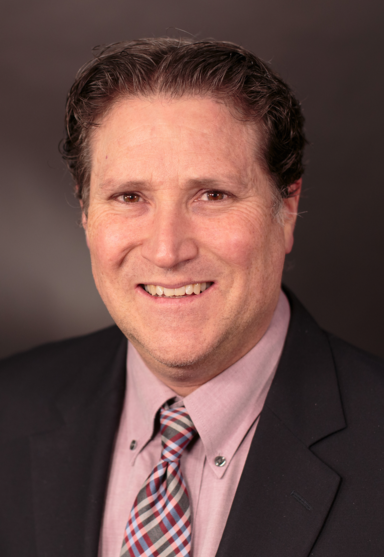The University of Iowa has made the first hire under its new Transformational Faculty Hiring Program, aimed at attracting world-class faculty to strategic programs and areas of excellence.
Eric Hunter, associate dean for research in the College of Communication Arts and Sciences at Michigan State University, has been named chair of the Department of Communication Sciences and Disorders at Iowa and the Harriet B. and Harold S. Brady Chair in Liberal Arts and Sciences. He will begin Aug. 16.

“Professor Hunter is a highly accomplished scholar who will have an immediate impact on our already renowned audiology and speech pathology programs,” says UI President Barbara Wilson. “Hiring someone of Eric’s stature will attract new talent and bring people together to generate new lines of research and scholarship. This is exactly what we hoped to accomplish with the Transformational Faculty Hiring Program.”
Iowa has long been a leader in communication sciences and disorders dating back to 1897, when the university, led by Carl Seashore’s pioneering work, developed speech pathology as a discipline of study.
Today, the university is home to top-ranked audiology and speech-language pathology programs. The Wendell Johnson Speech and Hearing Clinic serves more than 700 clients per year with a variety of speech, language, and hearing differences or disorders and provides real-world clinical training experience for the program’s students.
“This appointment demonstrates our commitment to attracting outstanding faculty to the University of Iowa—and it shows what an impact the Transformational Faculty Hiring Program can have,” says Executive Vice President and Provost Kevin Kregel. “With Dr. Hunter at the helm, our university will garner even greater distinction as the standard of excellence for research, teaching, and service in communication sciences and disorders.”
Hunter, who is a nationally recognized expert in his field, received a PhD from Iowa’s Department of Communication Sciences and Disorders program in 2001. At MSU, in addition to serving as associate dean for research since 2017, he has served as the director of the Trifecta Initiative for Interdisciplinary Health Research, a collaborative made up of the colleges of Engineering, Nursing, and Communication Arts and Sciences.
Hunter was instrumental in rebuilding and revitalizing MSU’s Communicative Sciences and Disorders program. He has published extensively and leads an active research lab with a continuous track record of multidisciplinary funded research. He currently serves as the principal investigator or co-investigator on about $8 million in federal research funding.
From 2007 to 2013, he served as deputy executive director of the National Center for Voice and Speech at the University of Utah, with the location previously at the Denver Center for the Performing Arts. He received a Bachelor of Science and master’s degree in physics from Brigham Young University.
“I had a wonderful experience at Iowa as a graduate student, and the dynamic and collaborative environment that I remember is just as strong today,” says Hunter. “The way Iowa works—with its core value of being helpful, combined with the expectations of working hard and being innovative—is a pathway for success that aligns with my own principles. I look forward to being in the department again, working closely with talented students, faculty, and alumni to support their success. I see a real opportunity to not only build new collaborations across campus, but also to strengthen partnerships across the state of Iowa and programs around the country. It’s an exciting time for Iowa, and I’m thrilled to be a part of it.”
Established in 2022 by the Office of the President and Office of the Executive Vice President and Provost, the Transformational Faculty Hiring Program seeks to hire tenured faculty in key areas of innovation and interdisciplinary strength who can have a transformational impact on the university because of their track records of expertise, scholarship, and teaching. The university intends to recruit up to three scholars per year for the next three years.
Sara Sanders, dean of the College of Liberal Arts and Sciences, says she is grateful for the support of this “visionary” program.
“CLAS is thrilled to be bringing a scientist and leader of Dr. Hunter’s reputation to Iowa to lead this storied program into the future,” Sanders says. “I am confident Dr. Hunter will ensure Iowa stays at the forefront of communication sciences and disorders.”
